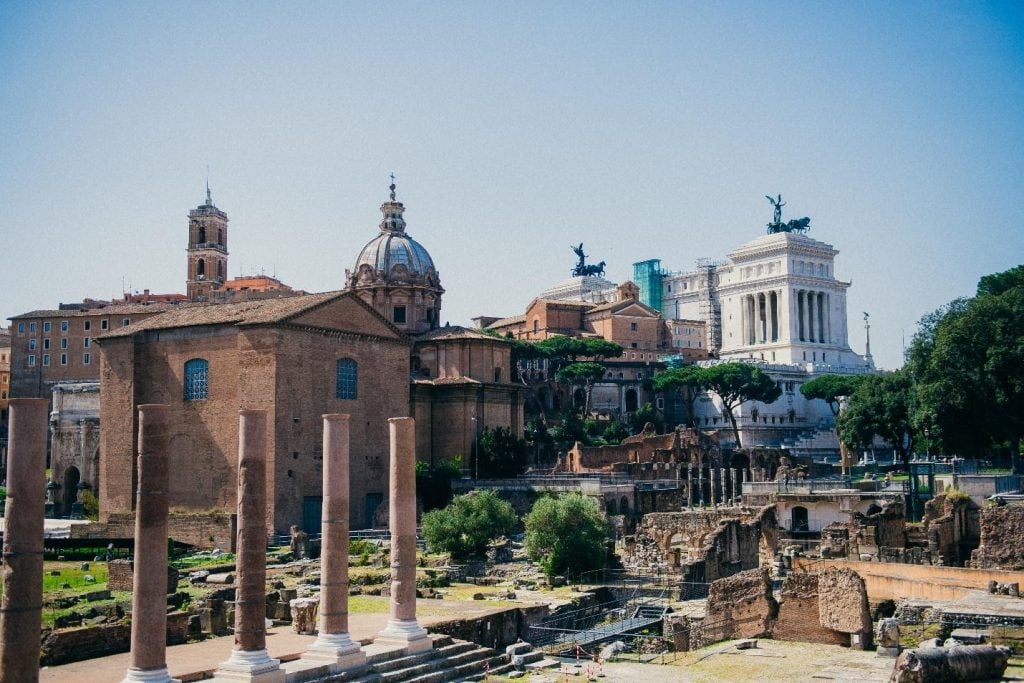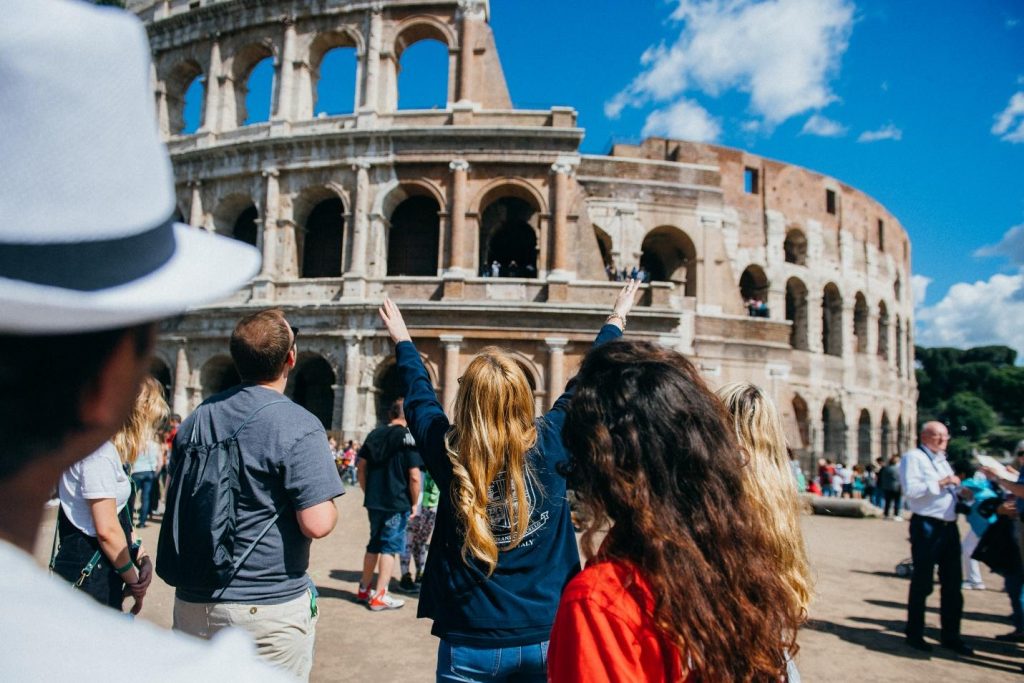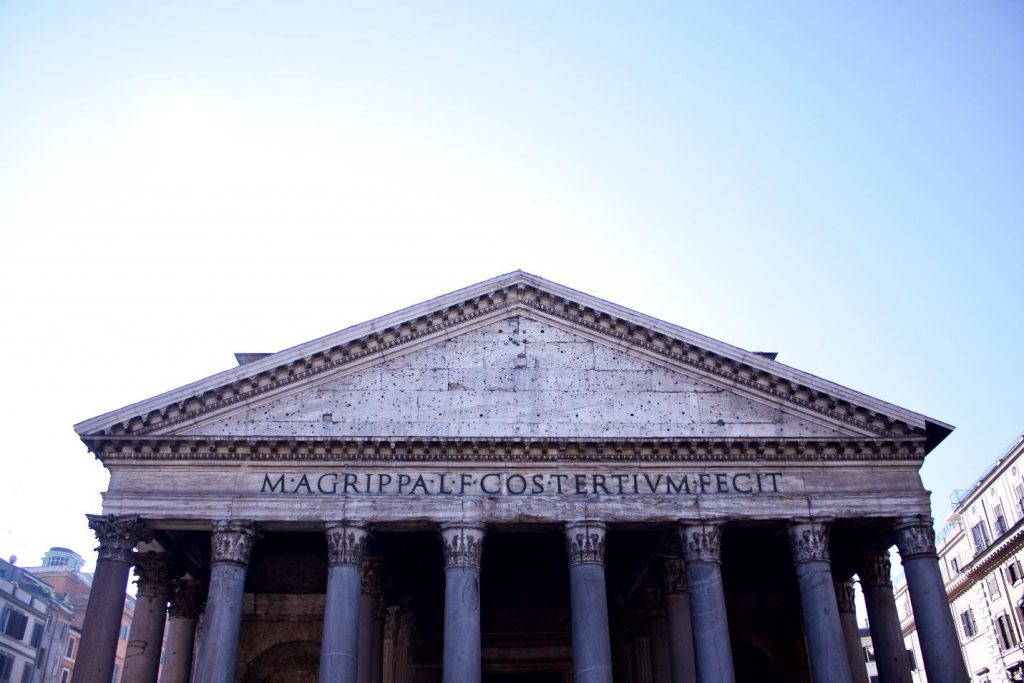

Studying history in Rome is invaluable because of the historical depth embodied by the Eternal City. While reading and learning about various historical periods, students have the opportunity to travel the streets of Rome viewing the monuments and artifacts of the important empire.
Rome has a rich, 1,300-year history from kingdom to republic to empire, stretching from the 8th century B.C. to the 5th century A.D. This area is major to both for Western civilization and for Christianity, and heavily influences the ideas, philosophies, and concepts that still rule the Western world today.
Whether they are studying abroad or earning their degree in Rome, students can visit sites such as St. Peter’s Basilica, a major Christian pilgrimage location, or the Baths of Caracalla—an ancient, enormous public bathhouse. There are many reasons why studying in Rome is valuable. Read on to learn a few of them.
Visit the Historical Colosseum
The Colosseum was commissioned nearly two thousand years ago, between 70 and 72 A.D., by Vespasian, an emperor who was part of the Flavian dynasty. After a period of instability marked by several civil wars, the Flavian dynasty was committed to restoring authority and promoting public welfare. They had the Colosseum built on the former site of a huge palace that the indulgent and authoritarian former emperor Nero had built for himself.

The Colosseum was meant to appease the citizens by providing a site where the public could enjoy entertainment. It was officially opened in the year 80 A.D. by Titus, Vespasian’s son, who set off a hundred days of gladiator fights and other games. The Colosseum was used consistently until the 6th century A.D. when it was abandoned due to many factors, including environmental damage to the structure. It was used as storage until restoration efforts began in the 1990s.
Today, students who study in Rome can visit the site and physically place themselves in the history of Ancient Rome.
Take a Walk Over to the Roman Forum
The Forum is a set of structures that will no doubt ignite the excitement and awe of students who study history in Rome. This location is bound up in the foundation of ancient Rome. A popular legend about Rome’s founding is that twin brothers Romulus and Remus fought, with Romulus eventually killing his brother. In 253 B.C., the land was called Rome, after Romulus.
Romulus then made an alliance with his rivals and established the Roman Forum as a neutral meeting zone. The Forum first served as a simple marketplace, then as a meeting area for public affairs, expanding and developing slowly over time. The important emperors Caesar and Augustus both built significantly on the Forum. The Roman Forum was the heart of the empire, and tourists today visit the area to study the ruins of arches and temples built to Saturn, Vesta, and the twins Castor and Pollux.
Study History in Rome While Viewing the Pantheon
The Pantheon’s history is shrouded in some mystery. The current-day structure is situated on the site of an earlier building that was designed around 25 A.D. This building is believed to have been a temple for the gods, hence the name pantheon, after the Greek words pan and theos, meaning all and gods, respectively. The original Pantheon was destroyed in a fire around 80 A.D., only to be rebuilt by Marcus Agrippa. Agrippa’s Pantheon was, unbelievably, also burnt down in 110 A.D.

The current-day Pantheon was completed sometime between 126 and 128 A.D. Much confusion surrounds its purpose or who built it, but historians have determined that court was held in it on occasion. For uncertain reasons, an inscription on the front of the third-generation Pantheon informs viewers that it was built by Agrippa, who commissioned the second-generation structure. Around 609, Pope Boniface IV converted it into a Christian church, which accounts for why the structure is so well-maintained today.
Do you want to study abroad at an American university in Italy?
Contact John Cabot University for more information!




